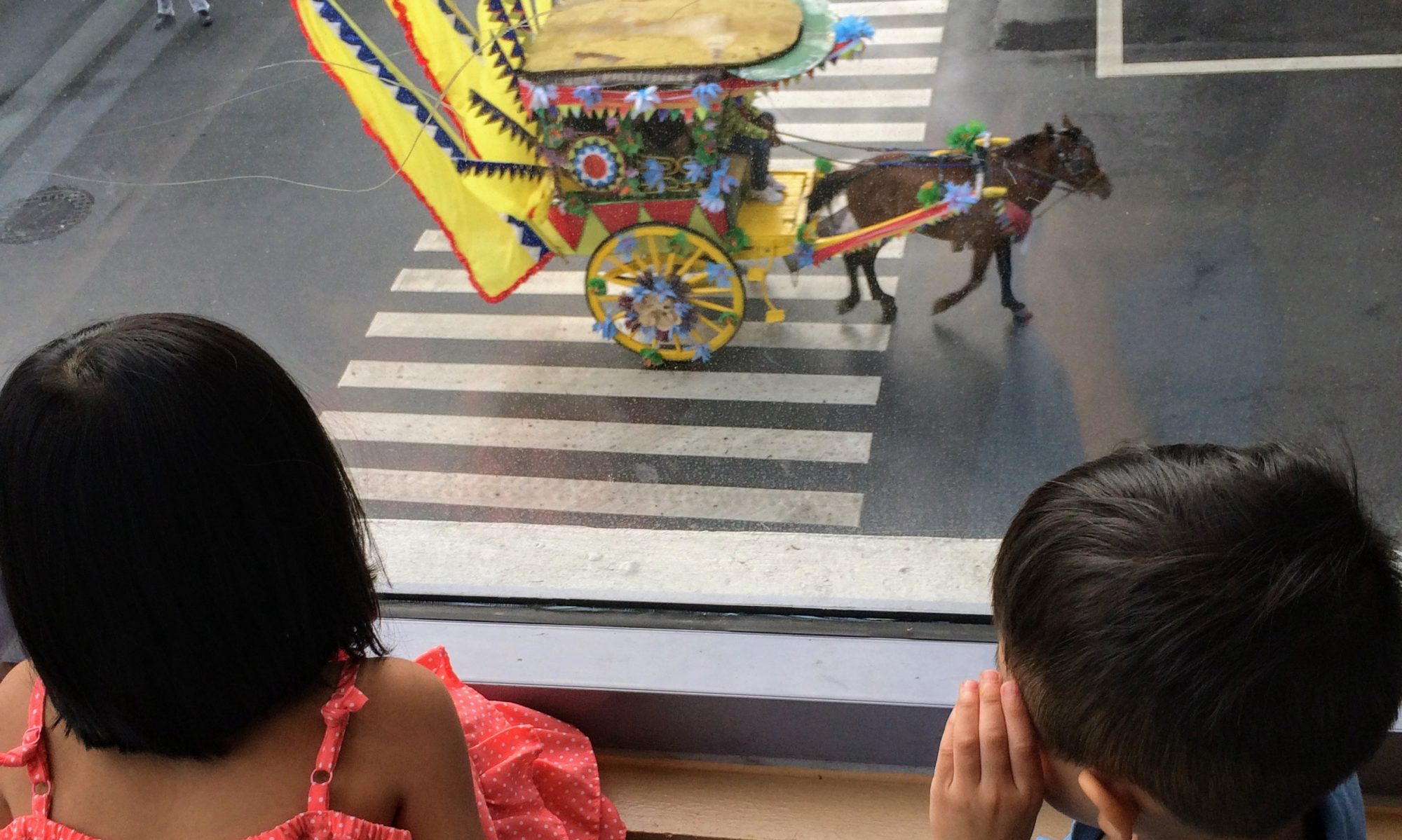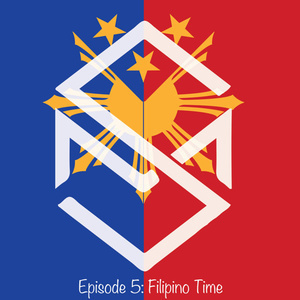Feedback, Updates & Corrections
Hey everyone, it’s Sherwin, back with Episode 5 of the podcast, which we’re calling “Filipino Time”.
Before we jump in, some quick follow-ups:
- Ronnie: Shout out to my friend Ronnie who now texts me “Tao po?” before starting a text conversation to see if I’m available. Cracks me up, but hey, it makes sense! Thanks for listening, man.
- Ep 4 Typo: Embarrassing confession time! On the social media image for Episode 4 (“Mano Po: Put Some Respek On It”), I managed to misspell the already misspelled word “respect.” I typed “resek” instead of “respek” (which was referencing the Birdman interview where he demanded “respek”). As a developer who types fast (60-80 wpm!), typos happen, but misspelling a misspelling? Oof. Anyway, the title is fixed in your podcast apps!
- Target Story: Abby got approached at Target by a guy asking if she was Filipino and if she knew where the “milk for avocados” was. He meant condensed milk for the classic Filipino avocado dessert (mashed avocado, ice, condensed milk – use Carnation brand!). I don’t like avocados myself, but it’s a popular treat. I’ll try to find a recipe link for the show notes.
- Allergy Update: Apologies if my voice sounds a bit off. Spring allergies hit me hard last week, so I’m congested and sniffling. Recording was delayed, and editing might take longer. Thanks for your understanding!
Let’s Talk About Time (Daylight Saving Edition)
This leads into our topic. March 12th (2017, when this was recorded) marked the start of Daylight Saving Time. Fun fact I learned researching this: it’s “Saving,” not “Savings”! Mind blown.
- History: Benjamin Franklin proposed a version in 1784 to save candle usage in Paris by waking people earlier. Later proponents aimed to reduce evening electricity use.
- Who Observes It: It’s mostly used away from the equator where sunrise times vary significantly. Asia and Africa generally don’t observe it, including the Philippines.
- Impact: This means the time difference between here (Pacific Time) and the Philippines shifts between 15 and 16 hours depending on the time of year. Gotta be careful when calling relatives! Abby sometimes wakes her mom up at 5 AM PH time. Sorry, Mom!
- Frustration: Anyone else hate manually changing clocks on appliances, cars, and those hard-to-reach wall clocks twice a year? My old car even had the old DST dates hardcoded!
Introducing “Filipino Time”
All this talk about time brings me to the main topic: Filipino Time. If you’re Filipino, you probably know exactly what this means. If not, it’s essentially a cultural stereotype (and often, a reality) describing the tendency for Filipinos to be non-punctual or fashionably late.
Key Tagalog Time Vocabulary
Before diving deeper, some relevant Tagalog words:
- Oras: Time (similar to Spanish hora)
- Anong oras na?: What time is it?
- Umaga: Morning
- Tanghali: Afternoon
- Gabi: Evening / Night
Why Am I (Sometimes) Late? My Excuses…
So, why does “Filipino Time” exist? I’ll keep it real and share my own experiences and excuses:
- Traffic: The universal excuse! Even though I generally know how long routes take, unpredictable traffic still happens and makes a convenient scapegoat.
- Getting Distracted: I get distracted easily while getting ready. The TV catches my eye, a good song comes on the radio (gotta sing along!), phone notifications pop up (Facebook scroll hole!), emails need immediate replies… minutes vanish quickly!
- Underestimating Time Needed: “Yeah, 30 minutes is enough!” Famous last words. Even with my super short haircut (specifically chosen to save time!), getting myself ready, plus getting two young kids ready and cooperating? Time multiplies. Using my kids as an excuse? Maybe sometimes!
- It’s a Filipino Event: This is a big one. If you’re going to a Filipino party or gathering, showing up “on time” often means you’ll be the first one there… by a long shot. There’s an unspoken understanding that everyone will likely be operating on Filipino Time.
- Feeling Weird Being On Time: Honestly? Sometimes arriving exactly on time for casual Filipino events just feels… awkward. Like other latecomers are judging you for being punctual! It’s a strange cultural quirk.
(Quick advice for non-Filipino listeners attending Filipino events: expect “Filipino Time,” and always eat when offered food – it’s considered disrespectful not to!)
The Birthday Party Time Warp Story
We once threw a birthday party for my oldest son (panganay) at John’s Incredible Pizza. We had a room reserved from 12 PM to 2 PM. Knowing most guests were Filipino, we put 11:25 AM on the invitation, hoping that even with a 30-minute delay, people would arrive around the actual 12 PM start time.
The result? Our non-Filipino friends arrived promptly at 11:25 AM and had to wait almost 20 minutes for us (we arrived at 11:45!). I felt terrible and apologized profusely, explaining Filipino Time. They laughed it off, thankfully. And yes, some Filipino guests still arrived after 12:30 PM!
Philippine Airlines: Plane Always Late?
Another example often cited is Philippine Airlines (PAL). It’s infamously nicknamed “Plane Always Late.” While many airlines have delays, PAL had such a reputation for it that we’ve started flying other airlines more recently when traveling to the Philippines.
Wrapping Up Filipino Time
So that’s my take on Filipino Time. It’s frustrating when it affects you, yet many of us (myself included) perpetuate it. It’s a complex cultural phenomenon tied to social expectations, priorities, and maybe just a more relaxed view of schedules sometimes.
Do you have funny Filipino Time stories or your own reasons for being late? Share them!

